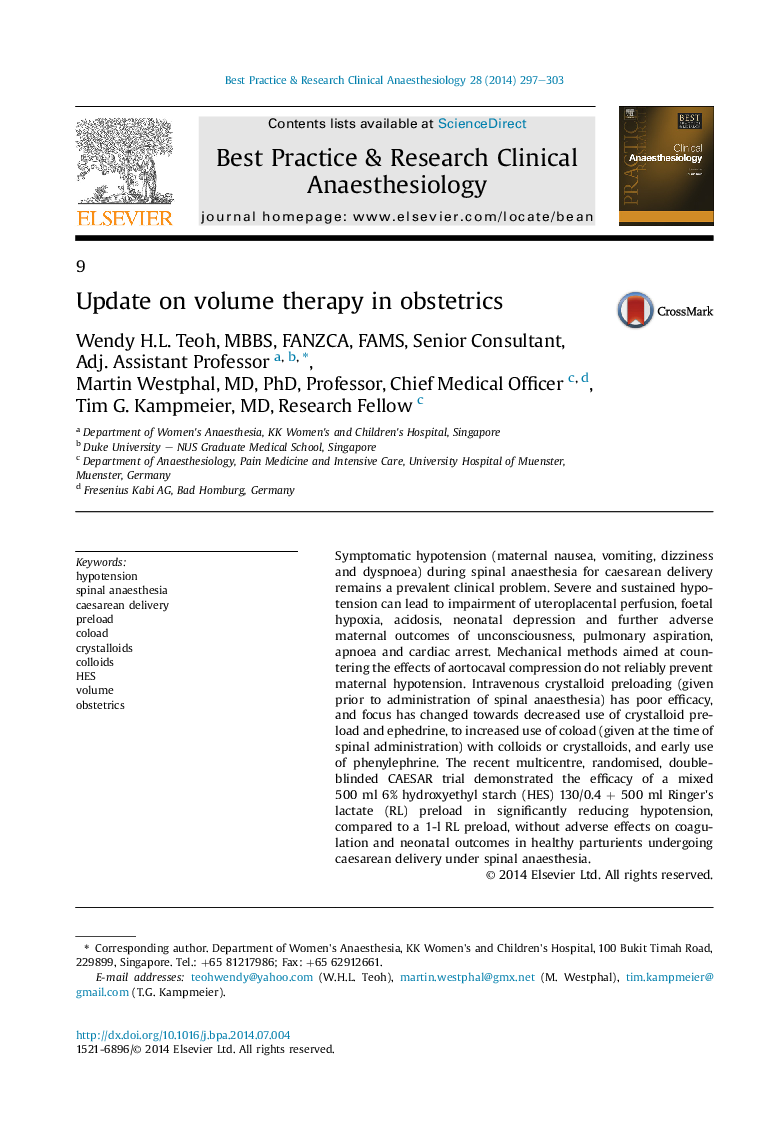| کد مقاله | کد نشریه | سال انتشار | مقاله انگلیسی | نسخه تمام متن |
|---|---|---|---|---|
| 5881826 | 1149188 | 2014 | 7 صفحه PDF | دانلود رایگان |
Symptomatic hypotension (maternal nausea, vomiting, dizziness and dyspnoea) during spinal anaesthesia for caesarean delivery remains a prevalent clinical problem. Severe and sustained hypotension can lead to impairment of uteroplacental perfusion, foetal hypoxia, acidosis, neonatal depression and further adverse maternal outcomes of unconsciousness, pulmonary aspiration, apnoea and cardiac arrest. Mechanical methods aimed at countering the effects of aortocaval compression do not reliably prevent maternal hypotension. Intravenous crystalloid preloading (given prior to administration of spinal anaesthesia) has poor efficacy, and focus has changed towards decreased use of crystalloid preload and ephedrine, to increased use of coload (given at the time of spinal administration) with colloids or crystalloids, and early use of phenylephrine. The recent multicentre, randomised, double-blinded CAESAR trial demonstrated the efficacy of a mixed 500Â ml 6% hydroxyethyl starch (HES) 130/0.4Â +Â 500Â ml Ringer's lactate (RL) preload in significantly reducing hypotension, compared to a 1-l RL preload, without adverse effects on coagulation and neonatal outcomes in healthy parturients undergoing caesarean delivery under spinal anaesthesia.
Journal: Best Practice & Research Clinical Anaesthesiology - Volume 28, Issue 3, September 2014, Pages 297-303
